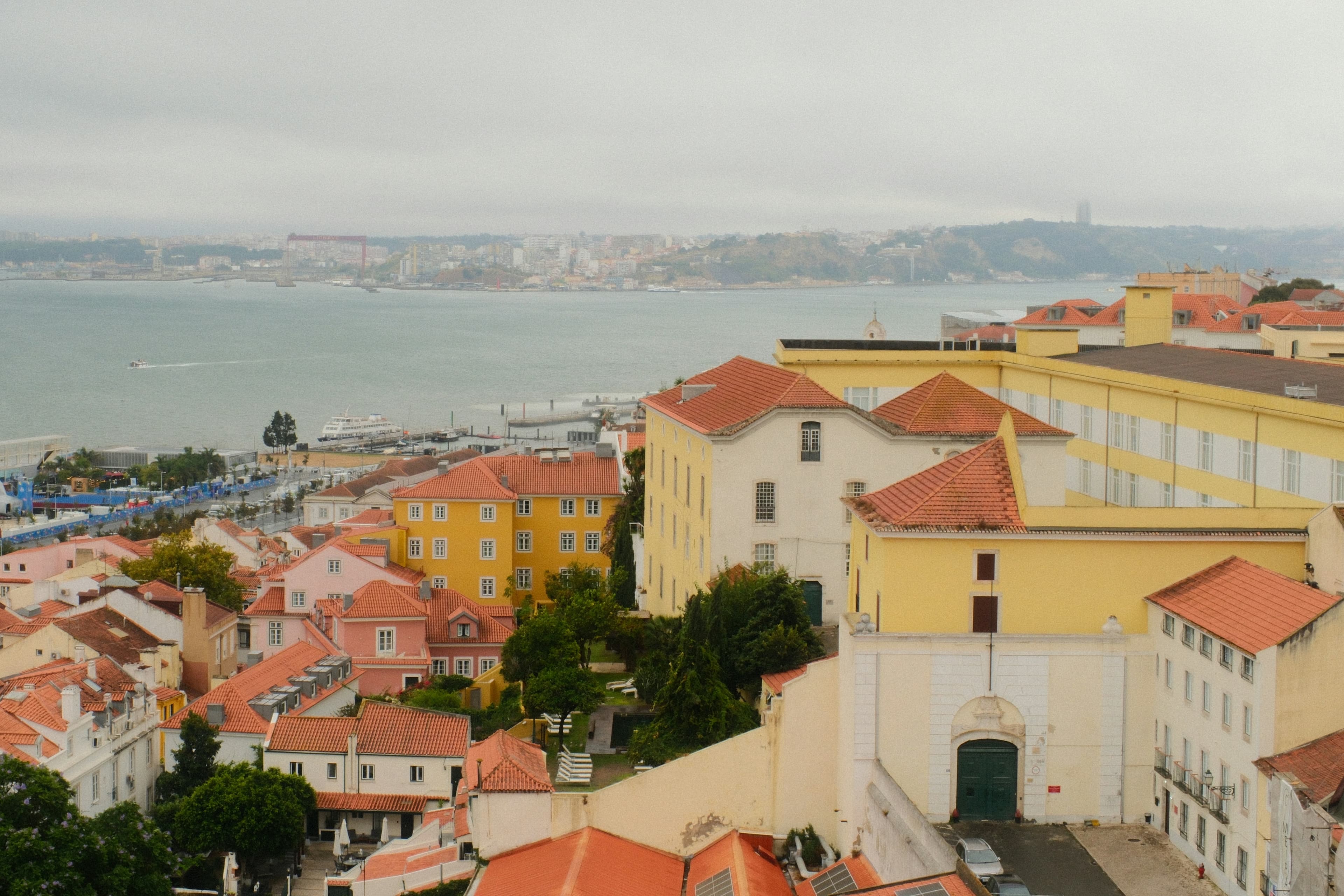
Truly Integrating into Portugal: Understanding the Local Mentality
Between Saudade and the Sweetness of Life: The Manual for a Successful Integration
There are countries where you arrive, unpack your bags, learn three words of the language, and think, “I’m integrated.” Portugal isn’t that kind of country. Here, integration isn’t about ticking boxes. It’s a slow conquest, a story of listening, of observation, of small gestures, and above all, of humility.
Portugal doesn’t give itself right away. It’s earned over time. And that’s precisely what makes it so captivating.
When you arrive in Lisbon or Porto, you often get the deceptive impression of a country that already feels familiar. The sun shines just right, people smile, you quickly learn the word obrigado, and you imagine yourself local already. But deep down, you’re only seeing the surface. Beneath the postcard, there’s a people who have learned to be wary of noise, flashiness, and quick promises. The Portuguese observe, calmly, before opening the door.
And if you truly take the time to understand that reserve, you’ll discover a rare warmth. A discreet warmth, but a sincere one.
The Portuguese Tempo: Slower, but Truer
Every newcomer to Portugal goes through the same phase: impatience.
The administration moves at the pace of a meditative turtle, the plumber promises “tomorrow” but comes next Monday, and the café down the street has no concept of rushed service.
And yet, that rhythm is perhaps exactly what we’re unconsciously looking for. Portugal moves against the current of a world that runs to miss nothing. Here, people take the time to miss things, and that’s what makes life feel more authentic.
The Portuguese have that quiet wisdom of those who know everything eventually gets done, just not necessarily when you want it to. It’s both disconcerting and liberating.
To integrate, you have to let go. Accept that “maybe” often means “no,” and that “tomorrow” actually means “someday.”
But once you adjust to that tempo, everything changes. You discover the pleasure of a pointless conversation, a coffee that lasts an hour, a silence that doesn’t feel awkward.
The Portuguese: Kind, Yes, but Not Naive
It’s often said that the Portuguese are kind. That’s true. But kindness shouldn’t be confused with naivety.
The Portuguese smile, listen, help. But they don’t forget. They observe. They remember who talks too loudly, who boasts, who doesn’t listen.
Portuguese kindness is a form of dignity. It’s not weakness, it’s deep politeness, almost a philosophy.
It’s also a way of saying: “I respect you, but don’t impose anything on me.”
To integrate here is to learn to stay humble. Not to try to “modernize,” “optimize,” or “energize” everything you touch. Portugal doesn’t need to be “improved.” It lives perfectly well with its mix of nostalgia and serenity.
Saudade isn’t sadness. It’s that elegant melancholy that colors everything, like a background of fado music that never truly leaves the streets.
The Relationship with Work and Life: A Balance to Reflect On
In France, Belgium, or Canada, people often talk about work-life balance. In Portugal, it’s just common sense. Here, life comes before work, and that’s not a slogan, it’s daily practice.
The Portuguese work hard, but they don’t identify with their jobs. They don’t define themselves by what they do, but by how they live.
A boss who leaves at 5 p.m. to watch the sunset doesn’t have to explain himself, he’s right.
And then there’s the relationship with free time. People go out often, but without excess. They talk, they laugh softly, they don’t shout. Alcohol isn’t social fuel, it’s accompaniment. Parties aren’t for forgetting, but for reconnecting.
The Trap of the Bubble: “Expats” Who Never Integrate
There are entire communities of expats in Portugal who live among themselves. They gather in cafés where no one speaks Portuguese, complain about the service, compare prices, and end up saying, “the Portuguese are lovely but a bit slow.”
Let’s be clear: that’s the best way to never integrate.
Learning the language, even a little, changes everything. The Portuguese don’t expect fluency, but they appreciate the effort.
Saying bom dia instead of “hi” is already a sign. And listening more than speaking is an even stronger one.
We often think we integrate by giving. In Portugal, you integrate by receiving. By observing. By soaking things in.
Little Habits That Say a Lot
There are a thousand details that tell a people’s story. The coffee drunk standing at the counter for fifty cents. The flexible punctuality. The instinctive respect for elders. The refusal to raise one’s voice, even in disagreement.
And then there’s this way of loving life quietly. The Portuguese don’t make noise, they don’t show off. They live. And maybe that’s the most beautiful lesson: here, happiness lives in silence.
To Understand Is to Love
To integrate into Portugal isn’t to “succeed at expatriation.” It’s to understand a culture of modesty, calm, and connection. It’s to learn to smile for no reason, to stay silent when it’s right, to be moved by a sunset over the Tagus.
Portugal isn’t trying to seduce you. It lets you come to it. And it’s in that slowness that the truest attachment is born.
Because, in the end, integrating here may be learning to live differently: slower, softer, but more fully.
Share this article
Suggested articles

Cultural Differences Between France and Portugal in Everyday Life
France and Portugal share a long common history built on respect and friendship. But living between the two countries means discovering how much small habits, ways of speaking, or daily routines differ. These cultural nuances, sometimes amusing, sometimes surprising, reveal a lot about the character of both peoples. Between lifestyle, communication, cuisine, family, or work, this is a journey into the heart of the French-Portuguese differences that make this relationship so rich.

Buy or Rent in Portugal: Which Housing Choice?
Portugal continues to attract: mild climate, vibrant culture, sunny gastronomy, and a relaxed pace of life. But when the time comes to settle or invest, one big question arises: should you buy or rent? The choice of housing, often emotional, becomes here a truly strategic decision. This guide helps you understand the differences, weigh the advantages, and choose the solution that best suits your project.

The Cost of Living in Portugal in 2025: Between Reality and Myth
For years, Portugal had that image of a small sunny paradise, where life cost almost nothing, where you could live like a king on a modest salary, and where retirees from Northern Europe came to settle down to “enjoy life.”

Mistakes to avoid when moving to Portugal
It’s a common mistake: imagining that moving to Portugal means leaving all modern life’s problems behind. The country may be welcoming, stable and warm, but it’s still a European nation with its own challenges.

Living in Portugal without speaking Portuguese myth or reality
Portugal is one of those rare countries where you can arrive without feeling completely lost. Young people speak English fluently, waiters switch easily between several languages, and even in public offices there’s almost always someone ready to help in French or Spanish. It’s not a myth: the Portuguese have a real talent for languages and, above all, they never make you feel bad for not speaking theirs.

The Most Popular Neighborhoods for Expats in Lisbon and Porto
Moving to Portugal has become, in recent years, a true social phenomenon. Between quality of life, mild climate, and warm hospitality, more and more expats are choosing Lisbon or Porto as their new home. But beyond clichés and postcards, each neighborhood has its own personality, atmosphere, and secrets. Let’s explore together the places most beloved by expats, where Portuguese authenticity meets modern comfort and a cosmopolitan spirit.


